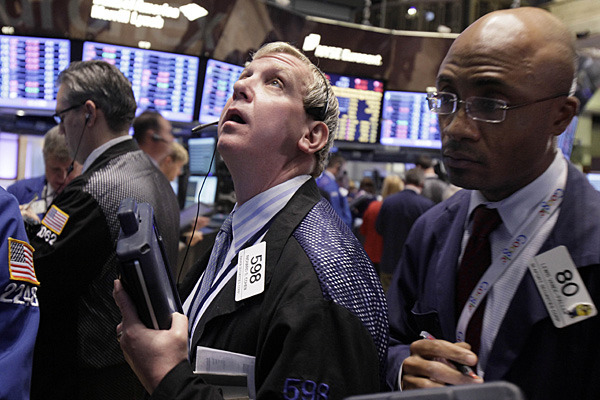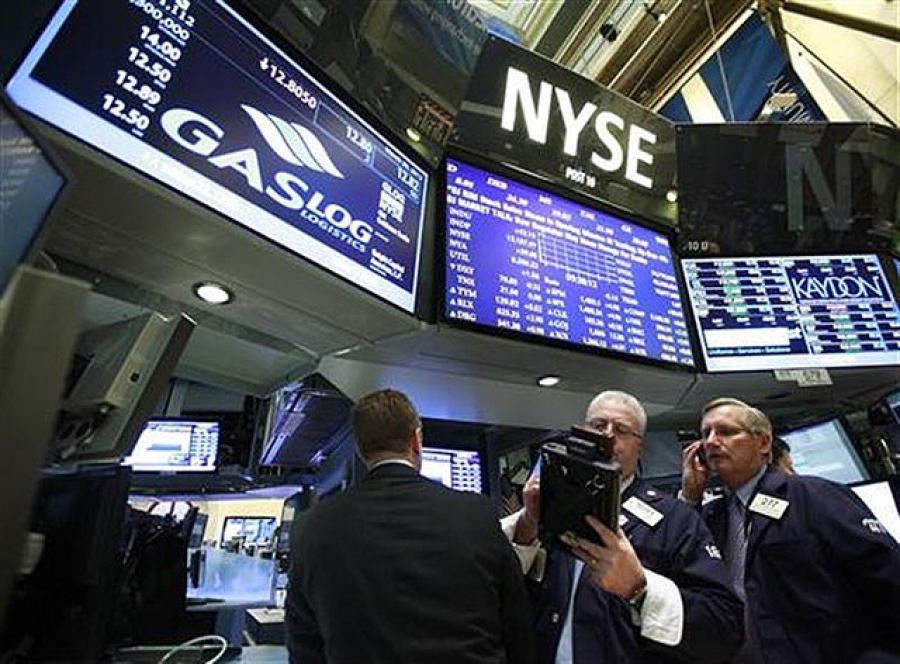On Wednesday, Shares of Chesapeake Energy Corporation (NYSE:CHK), lost -1.31% to $11.31, as some energy and related stocks decline following the Energy Information Administration’s report showing U.S. crude inventories grew last week.
Crude inventories raised by 384,000 barrels last week, analysts had been expecting a decline of 700,000 barrels, Reuters reports.
U. S. oil prices fell for a fifth straight session Wednesday after weekly inventory data showed an unpredictable enhance in crude supplies.
Crude inventories starting shrinking in April after hitting a record high, boosting prices, but the last two reports have surprised the market by showing stockpile builds.
Chesapeake Energy Corporation produces oil and natural gas through acquisition, exploration, and development of from underground reservoirs in the United States. It holds interests in natural gas resource plays, counting the Haynesville/Bossier Shales in northwestern Louisiana and East Texas; the Marcellus Shale in the northern Appalachian Basin of West Virginia and Pennsylvania; and the Barnett Shale in the Fort Worth Basin of north-central Texas.
Shares of Delphi Automotive PLC (NYSE:DLPH), declined -6.91% to $78.23, during its last trading session.
Delphi Automotive PLC, has closed the sale of its wholly owned thermal business to MAHLE Behr GmbH & Co. KG and certain of its affiliates, it was announced today.
Terms of the sale are consistent with those declared on February 19, 2015. At that time, Delphi and MAHLE also signed a separate letter of intent to sell Delphi’s stake in Shanghai Delphi Automotive Air-Conditioning System Co., Ltd., which is predictable to close in 2016.
Delphi’s Thermal division 2014 revenues were $1.6 billion, with about 7,500 employees and 13 plants globally.
Barclays is serving as Delphi’s financial advisor and Latham & Watkins LLP is serving as its legal counsel.
Delphi Automotive PLC, together with its auxiliaries, manufacturers vehicle components; and provides electrical and electronic, powertrain, safety, and thermal technology solutions to the automotive and commercial vehicle markets worldwide.
Finally, Darden Restaurants, Inc. (NYSE:DRI), ended its last trade with -0.99% loss, and closed at $70.84.
Darden Restaurants, declared the appointment of Jeffrey Davis as its Senior Vice President and Chief Financial Officer, effective July 16, 2015. In this role, Davis assumes responsibility for the financial functions of the company, counting finance and accounting, corporate reporting, corporate tax, treasury and investor relations, in addition to internal audit, supply chain, and real estate and development. He will report to Darden CEO Gene Lee.
Most recently, Davis served as Executive Vice President and Chief Financial Officer for the Walmart U.S. segment of Walmart Stores, Inc. He joined Walmart in 2006 as Vice President of Finance for the Walmart U.S. specialty division. He held additional roles of increasing importance, counting Executive Vice President and Treasurer for Walmart Stores, Inc., preceding to assuming the top financial post in Walmart’s largest business segment. Preceding to joining Walmart, Davis was CFO for Lakeland Tours, LLC, CFO for McKesson General Medical, and he held financial leadership positions at the Hillman Co, a private investment holding company. Davis also spent four years at KPMG Peat Marwick providing audit services.
Darden Restaurants, Inc. owns and operates full service restaurants in the United States and Canada. It operates restaurants under the Olive Garden, LongHorn Steakhouse, Bahama Breeze, Seasons 52, The Capital Grille, Eddie V’s, and Yard House brand names. As of June 23, 2015, it owned and operated about 1,500 restaurants. The company was founded in 1968 and is headquartered in Orlando, Florida.
DISCLAIMER:
This article is published by www.wsnewspublishers.com. The Content included in this article is just for informational purposes only. All information used in this article is believed to be from reliable sources, but we make no representations or warranties of any kind, express or implied, about the completeness, accuracy, or reliability with respect to this article.
All visitors are advised to conduct their own independent research into individual stocks before making a purchase decision.
Information contained in this article contains forward-looking information within the meaning of Section 27A of the Securities Act of 1933 and Section 21E of the Securities Exchange Act of 1934, counting statements regarding the predictable continual growth of the market for the corporation’s products, the corporation’s ability to fund its capital requirement in the near term and in the long term; pricing pressures; etc.
Any statements that express or involve discussions with respect to predictions, expectations, beliefs, plans, projections, objectives, aims, assumptions, or future events or performance may be forward looking statements. Forward-looking statements are based on expectations, estimates, and projections at the time the statements are made that involve a number of risks and uncertainties which could cause actual results or events to differ materially from those presently anticipated. Forward looking statements may be identified through the use of such words as expects, will, anticipates, estimates, believes, or by statements indicating certain actions may, could, should/might occur.



